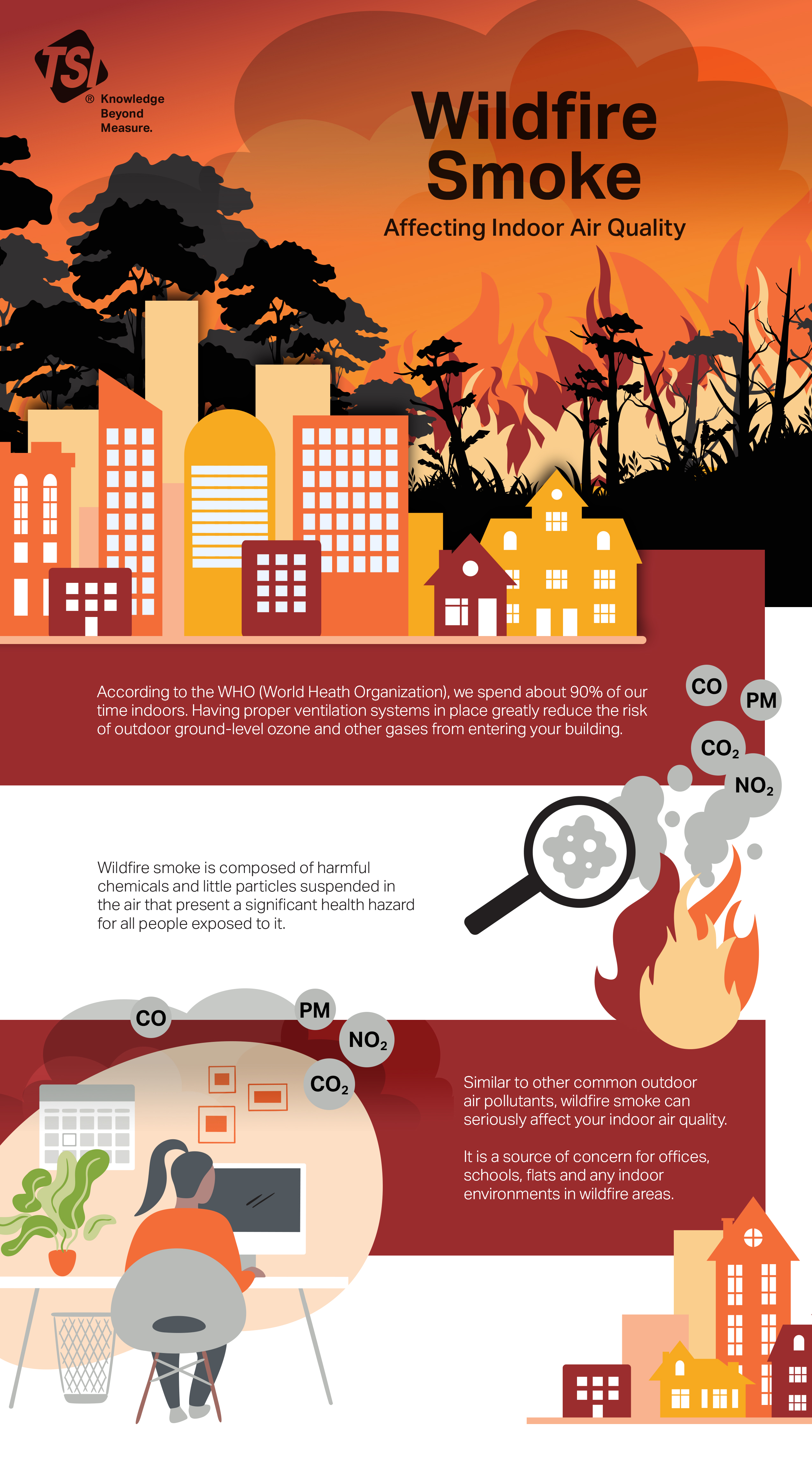With the increased frequency and severity of wildfires, how prepared are you to manage the effects of wildfire smoke on your building’s indoor quality (IAQ)? Here are five measures you can take to help protect the people inside until the outdoor air returns to normal.
1. Keep windows and doors closed.
Even if you can’t see or smell wildfire smoke, it still may be present and accumulating indoors — and the most direct way for these particulates to enter your building is through exterior windows and doors. Keep both closed as much as possible whenever wildfire smoke is in the area.
2. Temporarily run recirculated air through your HVAC system.
Turn off your fresh air intake and install a new filter as soon as you learn that wildfire smoke will be moving into your area. After the smoke has cleared, run the system’s fan for a days before reopening the fresh air intake.
3. Use a stand-alone indoor air cleaner.
Just like a dehumidifier removes water from the air, an air cleaner pulls pollutants out of it, through either mechanical or electronic means. Air cleaners are designed for spaces such as a single large room or open office configuration with multiple cubicles.
4. Reduce activities that can compromise IAQ.
Things like vacuuming, frying food in the office kitchen and using gas-powered appliances produce particulates that reduce the air quality inside. When wildfire smoke is at its peak in your area, try to minimize these activities as much as possible.
5. Proactively monitor outdoor and indoor air quality.
Because HVAC systems are usually set to bring in air from the outdoors, the quality of the air surrounding your building can directly impact the air inside. By using a combination of outdoor environmental air quality monitors and indoor air quality monitors, you’ll have the insight needed to make proactive, data-driven safety decisions — including managing wildfire smoke at the earliest stages.
Contact us to learn how TSI can further help you with air monitoring solutions.
 汉语
汉语
 English
English
 Français
Français
 Deutsch
Deutsch



.jpg)